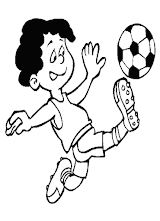The anonymous mishnah at Avot 5:9 lists seven distinguishing features that enable us to spot who is a chacham -- a wise person -- and who is a golem. Among other things the chacham lets others who are older or wiser speak before he does. He doesn't interrupt others in the middle of a sentence. He doesn't ask questions that are stupid or irrelevant but, when he faces a question, he answers it properly -- and he concedes the truth rather than obstinately arguing that black is white. This chacham is clearly something of a role model whom we should emulate. Not so, the golem. But who or what is a golem and would we recognise one if we saw him in the street?
The golem is a well-known character in popular literature, but that genre was not in vogue 1800 years ago. In short, the golem is an animated anthropomorphic being who is created entirely from inanimate matter (usually clay or mud). The word in Mishnaic times meant a shapeless mass or something that was in an unfinished state. In Modern Hebrew the word means “idiot” or “dummy"; it is not a compliment.
Rabbi Eliezer Prins (The Lehmann-Prins Pirkei Avoth, translated by C. H. Moore) renders "golem" as “an immature person” and on balance I feel that this is the word that best fits the meaning of the Mishnah.
The golem may be contrasted with two other characters encountered in Avot who are spoken of in pejorative terms: the bur (often translated "boor") and the am ha’aretz (someone with low aspirations regarding Torah and education). Our golem may simply lack good manners and not be very clever, or he may be quite bright and knowledgeable but nonetheless quite unable to behave in an appropriate manner. Of all the suggested meanings and explanations of the golem, the one I like best comes from the Lehmann-Prins Pirkei Avoth.:
[T]he term גלם [Hebrew for 'golem'] does not mean an ignorant man or, what is the same thing for many, an uncultured person. A golem is, however, a person who may even master Torah learning, but it does not master him; that is, he does not show it in his actions. …He is still immature and his practice falls short of his theory. One can imagine a golem who has more theoretical knowledge than a chacham; he may be a “walking encyclopedia,” able to expound on any subject, but his knowledge does not inspire his actions and he will remain a golem despite all his knowledge.
The Mishnah may convey to some readers the impression that everyone in the world is either a golem or a chacham. This is clearly not what it means. If we make a candid assessment of our friends and family we are likely to conclude that most people are somewhere in between. The mishnah however has a particular objective in identifying the behavioral characteristics that mark a person out as being one or other of these polar opposites, and that is to give those of us in the middle a chance to think about ourselves.
The message here for those of us who occupy the middle ground is this: we have the potential to move in one of two directions. We can either tighten up on our self-discipline, reduce our propensity to show off and speak with greater honesty in the hope of qualifying as a chacham, or we can let ourselves slip, slough off the unwanted dead skin of good manners, please ourselves as we wish, and be viewed as a golem. We have the free will and the choice is ours.















